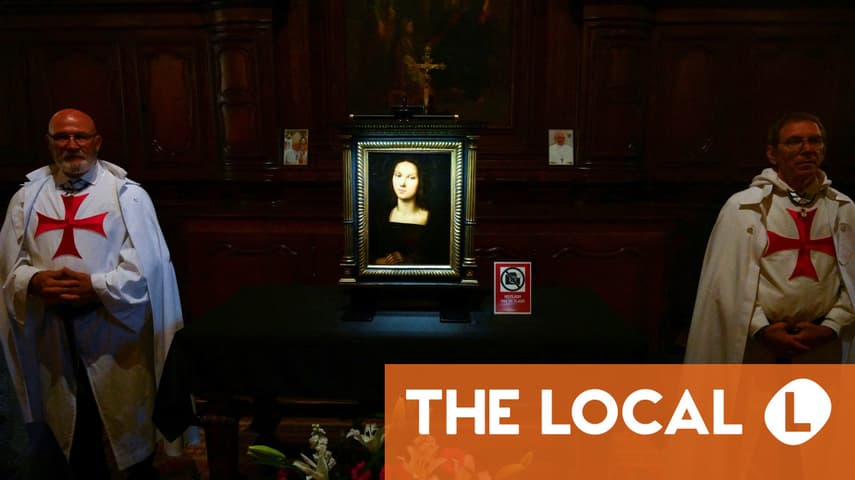A report by the Royal Canadian Mounted Police has been making the rounds, and its message is not pretty: the country is hurtling toward social collapse. The “Whole-of-Government Five-Year Trends for Canada” points to compounding crises, from economic stagnation and ecological disaster to technological disruption and a general erosion of trust in institutions. Most dispiriting are its projections for young Canadians such as myself: “many Canadians under 35 are unlikely ever to be able to buy a place to live [and the fallout] will be exacerbated by the fact that the difference between the extremes of wealth is greater now… than it has been at any time in several generations.” In other words, the situation has become so dire that the government has been advised to view its own young people as a looming national security threat. It is, apparently, easier for our leaders to adjust to this new apocalyptic reality than seek to change it.
When faced with this bleak picture, the natural response is to curse our dear leader. But while I’ve written my share of polemics against the prime minister, the fact is that a change in government probably won’t alter much beyond aesthetics, because our problems just run so much deeper. Indulging in “Trudeau Derangement Syndrome”, while most understandable after eight years, will only set one up for disappointment when our Daniel Hannan-approved Conservative leader Pierre Poilievre wins his majority. Like Javier Milei of Argentina, this ardent neo-Thatcherite will try to make neoliberalism cool again. He will be given a chance to change things, and he will fail, for none of his approaches to any of the major issues, most of all on housing and immigration, are fundamentally new or different.
If it is true that a nation deserves the leadership it gets, then this slim selection suggests there must be rotten in the state of Canada. Indeed, at odds with the Mounties’ fears of a revolt is the fact that Canadians — especially the youth — have remained just as self-effacingly polite and docile as ever, even as they are deprived of their futures.
Things clearly can’t go on this way, but where do we go from here? The American answer to moments of uncertainty has always been to “return to the founders”; to ask what Washington or Jefferson would have done. It’s a quirky but ultimately sound reflex that ensures a minimum of civilisational memory, even among those who would contest the founders’ legacy. Sadly, this attitude has no equivalent in Canada. Even before the erasure of our first prime minister, John A. Macdonald, in the name of “decolonisation”, Canadians (at least the English-speaking majority) have mostly been ignorant about what came before, who they are, and what their country is for. This goes for both the historical-nihilist Left and the market-fundamentalist Right, who tend to replicate the errors and contradictions of US fusionist conservatism.
There is, in other words, little to no historical consciousness among Canada’s elites, who are generally contemptuous of their heritage. In light of such hostility, I will make the case that an aggressive recovery of Canada’s historical mission, stemming from “the Tory conception of the state”, is the only way for the governing class to overcome the country’s most urgent challenges.
To this end, we must ask: what is Canada — what sets it apart? The most compelling answer is that of the historian Donald Creighton, who theorised that Canada emerged from an opposition between the river and the seaboard, that is, the St. Lawrence River system that defined Canada’s early development, and the Atlantic seaboard on which the Thirteen Colonies were settled. Creighton argues that the St. Lawrence and the lands around it formed a natural unity. Here, a series of factors — including the relative paucity of agriculture, isolation from the coast, and the primacy of the fur trade — gave rise to a distinct form of developmental capitalism, which later matured into a “doctrine of material expansion through political unity” entailing “unification and centralisation of control”. By contrast, the Atlantic seaboard had abundant arable lands and access to the Atlantic, which encouraged a republican ethos bound to the ideals of the independent yeoman-farmer.
For these reasons, there emerged a more deferential political order in the north that may be described as “Tory”, though it is different from Toryism in England, whose feudal past Anglo-Canada lacks. As philosopher George Grant explained, both halves of North America were dominated by dynamic Protestant liberalisms premised on the “technological mastery of human and non-human nature”. Canada, therefore, is no less a product of liberal modernity than America, but where the latter’s agrarian clime birthed a republican state, the former’s harsh geography created what we might call a company-state, with its emphasis on corporate order and commercial progress over popular liberty and civic virtue as a better means of achieving the conquest of nature. Canada was, after all, built on the imperial ambitions and avarice of its great companies, whether it be the mercantile firms of the Château Clique, the Grand Trunk and Canadian Pacific Railroads or the Hudson’s Bay Company.
The whole point of founding the Canadian state in 1867 was to furnish a “credit instrument that would provide the resources necessary for the economic development of the British North American colonies”. Backed by capital in the metropole, this was the practical, overriding mission of Macdonald and the “Laurentian elite”. The deference (or docility) often associated with Canadians is not, therefore, that of the vassal to his lord but that of the worker to his manager, and that of the manager to the corporate board. For this is exactly the sensibility needed to run a company-state, one that follows orders and doesn’t ask too many questions.
At its best, this tradition, a kind of Canadian Hamiltonianism that wields the powers of state and market harmoniously to forge new economies of scale, is capable of vast creative potential, having built a country with railroads, factories, farms and mines spanning a continent. At its worst, it has led to colossal bouts of dysfunction, as is the case today. In any event, progressives in Trudeau’s camp recoil at this legacy because of its colonial origins, while conservatives in Poilievre’s camp ignore it (even as they pay devoted lip service to Macdonald) because it contradicts their rabidly anti-statist, free-market ideology. As a result, this school is dormant.
But can it be revitalised? Certainly not by the Boomers and Gen Xs, for they are the ones who despoiled Canada and led it into this abyss. But perhaps it could inspire ambitious Millennials and Gen Zs who are doomed to inherit this disintegrating society.
I’m thinking here of young elites in their twenties and thirties who occupy junior or mid-level posts across government, finance, tech, NGOs, and other prestige sectors. Though their credentials qualify them as “elites”, they are nonetheless subject to the same trends of material precarity, social immobility, and financial pauperisation as the rest of their cohort. This means that even as they rake in decent salaries and impressive job titles, they are unable to buy homes and meet the same comfortable measures of security that their parents had. This is the classic “pre-revolutionary” situation of frustrated young elites who lose their stake in the status quo. But the question is: do they have the potential to seize control and remake the country?
I should have some idea, as I went to graduate school with them in Toronto, and though I have since moved back to my home in the Alberta hinterlands, I am familiar with their ways. And the short answer is no, they do not have the makings of revolutionary subjects — at least not yet.
As it is, they are the embodiments of homo neoliberalensis, forever bound up with the proverbial “rat race” and prone to mistaking real life for LinkedIn. If they have any brilliance, it is not that of the visionary but of the ultra-efficient functionary, for there is little of the imaginative, the poetic or the statesmanlike in them. Like the bureaucrats in Terry Gilliam’s Brazil, they know how to dress well and strut about with the appearance of purpose down the halls of power, without having any idea as to what power is or to what ends it should be applied. And like that film’s protagonist Sam Lowry, in their nervous hearts, they have “nothing, not even dreams”, only a wish for survival amid what literary critic Northrop Frye called Canada’s “garrison mentality”: “a dominating herd-mind in which nothing original can grow.”
However, in the years ahead, these rulers-in-waiting will possess greater control of the nation’s financial, political and cultural power. What is needed is a vision to rouse them from their timid state and spur them into heroic action, in spite of themselves. Already, a few of the most forward-thinking policy intellectuals in this class have stumbled on a new synthesis: to solve the housing crisis with a national industrial policy. This idea remains in its most rudimentary stages, but it is the first hint of what a new incarnation of the company-state could look like. It will have to be something on par with Macdonald’s project: what railroads had been to his century, housing can be to ours, the stimulative engine of a grand nation-building enterprise, through which novel modes of technological production and innovation can be unlocked. This is the object to which they must now devote their lives, for which they must learn how to wield the company-state’s awesome capabilities.
The young Laurentians will have to secure new sources of capital from abroad, and devise the requisite instruments of developmental finance with which to steer it toward productive and profitable investments in the real economy, particularly in manufacturing, prefab and modular construction, nuclear and hydrogen energy, transportation and public infrastructure. (Needless to say, an expansion of housing supply will also have to be accompanied by a contraction of demand, i.e. a reduction of immigration intake.) Yet this plan cannot take shape under Poilievre, whose heavily libertarian and anti-corporate style of populism is antithetical to the company-state: it will have to wait for the government after him.
The first Laurentian epic of 1867 conquered impossible distances to create an industrialised dominion from the Atlantic to the Pacific. The second, culminating in 1967, humanised that industrial economy and created a mass middle class. The third “neo-Laurentian” epic will have to do both: to reindustrialise Canada and restore a middle-class society. Looking forward to the Canada of 2067, we may hope for its success — or we can start to work for it.



